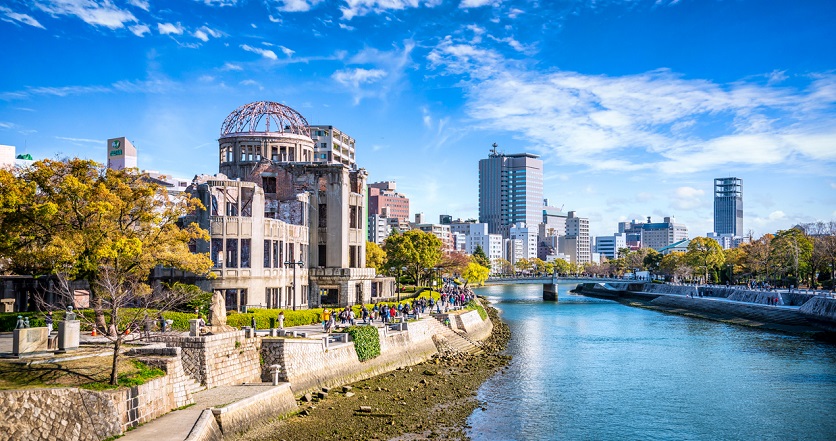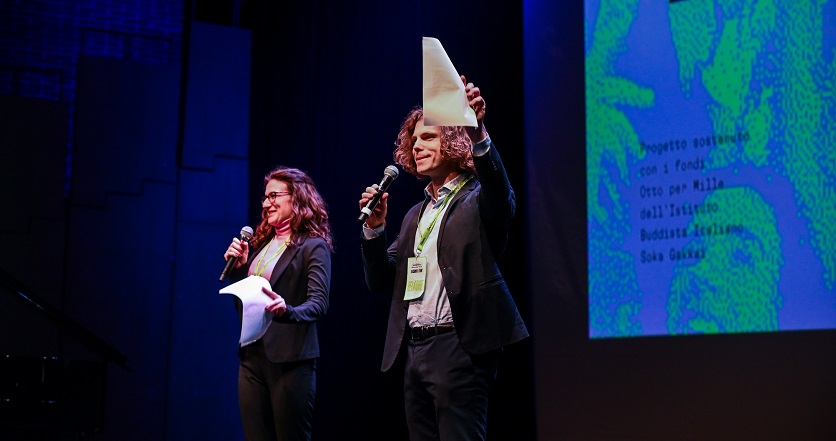Amplifying Hibakusha Voices for Nuclear Disarmament: A Conversation with Jamaican Ambassador Shorna-Kay M. Richards
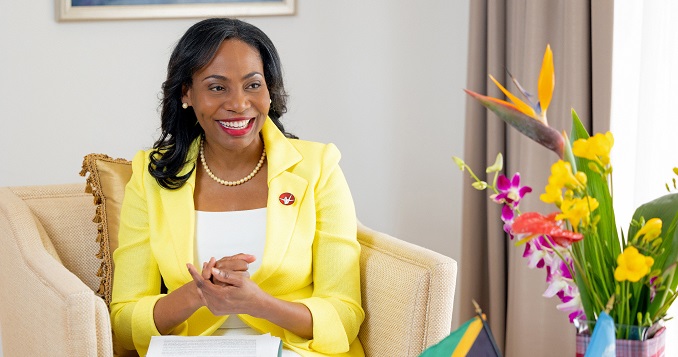
With anxiety around the risk of nuclear weapons use on the rise, safeguarding global peace and security has become more urgent than ever. Shorna-Kay M. Richards, ambassador of Jamaica to Japan and chair of the UN Secretary-General’s Advisory Board on Disarmament Matters, shares the story behind her dedication to working for a world free of nuclear weapons: the voices and experiences of the hibakusha—survivors of the atomic bombings. She reminds us that there is no action or voice too small to make an impact and that disarmament has always been, and must continue to be, about the people.
Jamaica’s Legacy of Peace and Activism
You started serving as the Jamaican ambassador to Japan in 2020. Could you tell us about Jamaica?
Jamaica is a small island country in the Caribbean. It is the home of world-renowned Jamaica Blue Mountain coffee and the birthplace of reggae music, which is designated by UNESCO as an intangible cultural heritage.
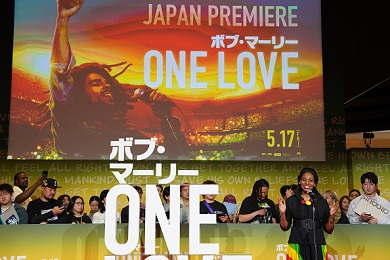
Reggae music, which has a strong message of love, peace, solidarity, human rights and equal rights, gained international popularity during the 1970s thanks to famous Jamaican reggae musicians like Bob Marley and Peter Tosh who used their songs to challenge the status quo, to ask questions. Reggae music represented a form of activism. It was advocacy music. Marley and Tosh also sang frequently about the dangers of nuclear war, with Tosh calling for humanity to avoid such a catastrophe in his 1987 album entitled “No Nuclear War.”
In Jamaica, there is a saying: “Wi likkle, but wi tallawah.”—“We are small, but we are strong-willed.” Jamaica became independent in August 1962. As a post-colonial, post-slavery state, its people have always been keen to speak up against issues of injustice.
In October 1962, Jamaica, being located in close proximity to Cuba, experienced the tension of the Cuban Missile Crisis between the United States and the Soviet Union over the delivery of Soviet nuclear missiles to Cuba. This shaped Jamaica’s history of warning the world about the threat of a nuclear war.
A Promise Made to the Hibakusha
What drew you to work on nuclear disarmament issues? Was there a personal experience or turning point that sparked your dedication to this cause?
The starting point of my work for disarmament was 20 years ago. In 2005, I was one of thirty people selected to participate in the UN Disarmament Fellowship Programme, which is run by the United Nations Office for Disarmament Affairs for young diplomats from various countries. As part of the program, I was given the opportunity to visit Hiroshima and Nagasaki, Japan, where I met with the hibakusha, A-bomb survivors, for the first time. This experience defined my future career path towards disarmament.
I vowed that if the time came for me to work for the UN, I would do my best to abolish nuclear weapons with the hibakusha’s appeal ‘Never again!’ in my heart.
At the Peace Park, the atomic hypocenter and the National Peace Memorial Hall for A-Bomb victims in Nagasaki, and the Peace Memorial Park, including the Atomic Bomb Dome, the Children’s Peace Monument and the Peace Memorial Museum in Hiroshima, I learned about the horrific consequences and the catastrophe of nuclear weapons use. I had the opportunity of hearing firsthand from the hibakusha about their heart-wrenching experiences. I was inspired by their courageous and brave work and by their determination to not sit silently, but to get up, to stand up amidst the difficulties and speak up and share their suffering so that humanity would never again have to endure what they did.
I vowed that if the time came for me to work at the Jamaican Permanent Mission to the UN, I would do my best to contribute to the abolishment of nuclear weapons, carrying the hibakusha’s plea “Never again!” in my heart.
Currently, I am the chair of the UN Advisory Board on Disarmament Matters. This board advises the UN Secretary-General directly and has been asked to analyze the future of international peace and security in light of advances in science and technology and consider how the UN disarmament machinery can proactively respond, including to the risks and opportunities. For instance, the convergence of AI and nuclear weapons in such high-stakes environments could diminish human oversight, increase the risk of miscalculation, and heighten the likelihood of unintended escalation.
Science and technology should serve humanity—advancing peace, sustainable development, and global equity, not be tools for destruction. And so, one of the big issues that we have been discussing is human control, especially around AI and around autonomous weapon systems.
Creating a New Norm Against Nuclear Weapons
Between 2012 and 2016, you served as Deputy Permanent Representative of Jamaica to the UN and were involved in negotiations for the establishment of the Treaty on the Prohibition of Nuclear Weapons (TPNW), the first legally binding instrument to prohibit nuclear instruments. Could you tell us more about this historic accomplishment?
The Deputy Permanent Representative of Jamaica to the UN is usually in charge of the Fifth Committee of the General Assembly, which deliberates on budget and other matters. However, determined to fulfill the promise I made to the hibakusha some seven years earlier, I chose to become a member of the First Committee of the General Assembly, which deals with disarmament and international security issues. It was during my work in the First Committee that I became involved in negotiations for the establishment of TPNW.
In 2013, I was approached by the Latin America and Caribbean arm of the International Campaign to Abolish Nuclear Weapons (ICAN) and was introduced to the concept of the “humanitarian consequences of nuclear weapons.” I had not heard of this way of framing the discourse around nuclear weapons before and started researching the topic. The same year, the first Conference on the Humanitarian Impact of Nuclear Weapons was held in Oslo, Norway. In 2014, I collaborated with ICAN to create one of the first regional roundtables on the humanitarian consequences of nuclear weapons and the prospects for a ban treaty. We hosted this workshop in Montego Bay, Jamaica.
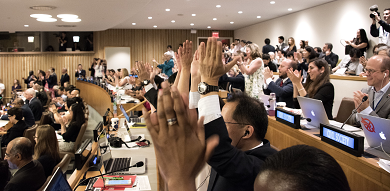
Then, in 2016, I was strongly encouraged by the chair of the Open-ended Working Group (OEWG) on taking forward multilateral nuclear disarmament negotiations to participate in the deliberations of the working group that was to be held in Geneva, Switzerland. It was a critical working group because the final report that was submitted to the First Committee led to negotiations aimed at establishing the TPNW.
As a “one-woman delegation,” representing the small Caribbean island states, I delivered a statement every single day there. On the last day, with the approval of the chairperson, I shared my thoughts on nuclear disarmament following my national statement. I spoke about my 2005 trip to Hiroshima and Nagasaki as a UN Disarmament Fellow and the promise I made to the hibakusha, who are the reason for my participation in the working group. I emphasized the need to give priority to disarmament education, conveying the reality of atomic bombings, and the necessity of including the perspectives of women. More diverse actors need to be involved in disarmament discussions. Because it is about “we the peoples,” as it is stated in the United Nations Charter.
The TPNW was adopted in 2017. This historic achievement didn’t happen overnight. It was the determination and conviction of a vast network of people: states, civil society and international organizations working together—a coalition that said: “Enough is enough. We need to have a categorical ban. We need to have a new norm against the use of nuclear weapons.” It’s the people that decide to take action.
Even though the nuclear weapons states have not signed the TPNW, we shouldn’t give up. We entrench the norm, we codify the norm, and we move forward.
Security Through a Human Lens
What role do small nations and civil society play in shaping global norms?
The Caribbean island countries, including Jamaica, are small states. There are not many experts. That is why cooperation with like-minded countries and civil society has been very helpful. I am convinced that if we work together, we can change the status quo.
Making a contribution is about being serious about the issue at hand and finding ways to achieve progress. When a mosquito bites you, although it’s tiny, you feel it, right? It has an impact. So, no matter how small you are, no matter how small the contribution is, try to make one, because it will have an impact.
Disarmament is not about the weapons—it’s about the people. It is not just about reducing weapons. We can achieve the ultimate goal of disarmament only when human security is achieved.
Many people don’t know that small states played an important part in the negotiation of the TPNW as it is a nondiscriminatory treaty. All states had a voice independent of their size or development status. Because all of us are impacted. If there is a nuclear weapon detonation, it’s not going to affect only the states that have the weapons. It will affect all of humanity.
That’s why a whole-of-society approach is necessary. Today’s global issues cannot be solved by a siloed approach. We need that expansive, all actors on board approach, holding on to fundamental, universal values such as freedom, the right to life and dignity.
Disarmament is not about the weapons—it’s about the people. It is not just about reducing weapons. We can achieve the ultimate goal of disarmament only when human security is achieved.
Instead of only discussing the increase or decrease in the number of nuclear warheads, a new approach centered on people, such as how nuclear weapons affect human lives, well-being, and the future of humanity, paved the way for TPNW. We must always continue to ask “What is security? Who is security for?”
The idea of national security or military security alone is insufficient. Security is multidimensional and includes protecting people’s lives from such things as climate change and pandemics.
Lessons of War and Peace from Okinawa
The Soka Gakkai Okinawa Training Center and the nearby Okinawa World Peace Monument are built on the site of a dismantled US MACE-B nuclear missile base. What were your impressions of visiting the Soka Gakkai Okinawa Training Center in 2025?
I visited the Soka Gakkai Okinawa Training Center on March 26, the very day the Battle of Okinawa began 80 years before—when the US forces captured the Kerama Islands surrounding Okinawa. Many people in the world know about Hiroshima and Nagasaki, but few people know about the Battle of Okinawa.
The Okinawa World Peace Monument and the exhibitions at the center allowed me to see firsthand the tragedy and the horrific suffering. I viewed drawings by survivors of the Battle of Okinawa. It was like listening to their experiences depicting the horrific nature of war. War is absolute evil, we need to reject it.
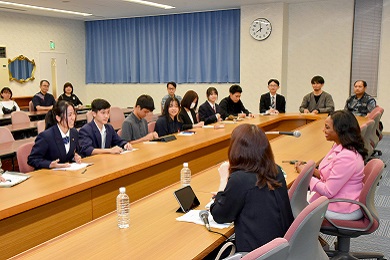
We will always have disagreement, differences and conflicts, but we have other tools to manage that. Dialogue is one such tool. President Ikeda often talked about this. He lived a life of dialogue. War and military intervention is not a solution. My visit to Okinawa was a strong reinforcement to continue making small, modest contributions to fostering a culture of peace and help support disarmament and peace education.
Once again, the two words “Never again!” have remained with me. The visionary decision of President Ikeda to transform a place of war into a place for peace so that we will never forget the foolish mistake of war was a strong message for me.
I also had a wonderful time interacting with the Soka Gakkai youth in Okinawa. The youth are the leaders of the future but we actually need them to be the leaders of today. Their enthusiasm and interest really encouraged me. They represent hope and transformation. They can help change the status quo, but we have to equip them.
The 80th anniversary of the end of World War Ⅱ is an important milestone. Its significance energizes me.
Eliminating the Threat of Nuclear War
In January of this year, SGI (Soka Gakkai International) issued a statement calling for the construction of a world without nuclear weapons based on the pledge of “No First Use” of nuclear weapons and the establishment of a nuclear war prevention center, both of which President Ikeda called for in his peace proposals and statements. What are your thoughts on these measures as practical steps toward disarmament?
As the Doomsday Clock shows, the risk of nuclear weapons use today is greater than at any time since the Cold War, and global security is under serious threat.
The use of nuclear weapons can be caused by technical errors or accidents or by decisions made by the leader of a country.
In light of this situation, I believe that the SGI proposal to advance the long-standing principle of “No First Use” of nuclear weapons is more urgent than ever. Some nuclear powers have committed to the “No First Use” pledge. However, in order to reduce the risk of nuclear weapons use, I believe that pledges by all nuclear powers are important.
In addition, the establishment of a nuclear war prevention center staffed by experts from the nuclear-weapon states who would share information is a very important proposal in order to de-escalate the current situation.
In times such as the Cuban Missile Crisis, alternative venues for negotiation other than solely official diplomatic channels also played an important role in averting the crisis. Now, such alternatives are disappearing. Having such a place or alternative in the form of a Nuclear War Prevention Center would not only prevent launches based on misinformation but also build confidence and prevent all forms of nuclear war.
I believe that the abolition of nuclear weapons is the best way to eliminate the threat of nuclear weapons in the long run. However, the “No First Use” proposal, which is not a substitute for nuclear disarmament, is very valuable in responding to the immediate threat.
Faith-Based Organizations as a Moral Compass
How do you see the role of faith-based organizations (FBOs) in the international community’s efforts to achieve peace?
One of the most important credentials of FBOs is that they provide an ethical perspective to the international community. They serve as the moral authority. At the core of the Soka Gakkai’s beliefs lie a philosophy that values the dignity of life, freedom and solidarity. These are the values that SGI brings to the international discourse on weapons and conflict.
FBOs help redirect military spending to areas such as sustainable development, climate change, food security, energy, education and health. It is in their DNA to help shape and guide the international discourse on these issues at the multilateral level.
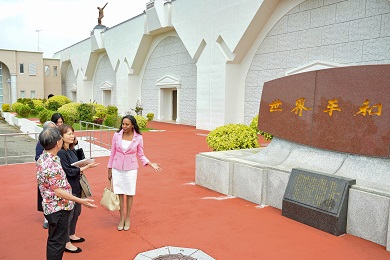
As part of the wider civil society, faith-based organizations play a critical role because they are the voice of the people. As the 21st century advances, the people need to take centerstage. Civil society offers the means through which the people’s voices are heard.
The SGI has been providing working papers and statements as well as holding side events, helping us understand the issues and raising awareness toward a world without nuclear weapons.
Through culture, education and dialogue, the SGI also fosters global citizens with values such as empathy, tolerance, diversity and mutual understanding. These are very important values in the international community today.
I hope that Soka Gakkai members will continue to contribute to peace throughout the world.
Adapted from an article in the May 14, 2025, issue of Seikyo Shimbun, Soka Gakkai, Japan.





